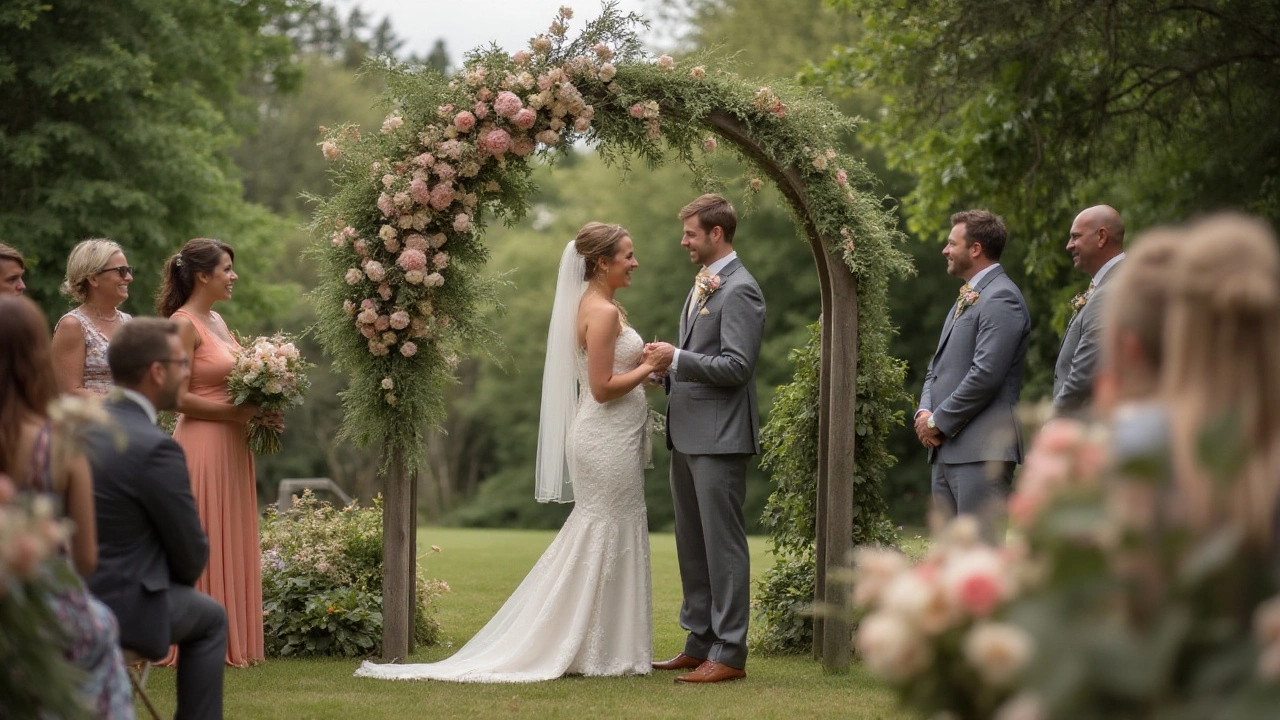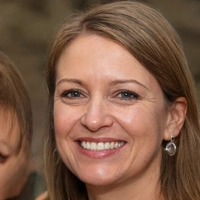Planning the perfect wedding involves an array of decisions, from the venue to the flowers, and of course, the photographer who will capture every precious moment. One of the questions couples often face is how long to hire the wedding photographer for. Is five hours enough to cover the key highlights of the day?
It really depends on a few key factors, such as the wedding timeline, the number of locations, the size of the bridal party, and what moments are most meaningful to you as a couple. By understanding these components, couples can make a more informed choice that aligns with their vision and budget.
- Understanding Your Wedding Day Timeline
- Capturing Essential Moments
- Factors Influencing Photographer Time
- Tips for Negotiating with Photographers
Understanding Your Wedding Day Timeline
When planning a wedding, understanding the nuances of your wedding day timeline is crucial, especially when deciding how many hours to book your wedding photographer. Your timeline not only determines how your day will flow but also guides your photographer in capturing those treasured moments. From the anticipation of getting ready to the spectacle of the first dance, knowing the layout of a typical wedding day can help balance your desired photos with allocated time slots.
The day often begins with preparation shots, which include those delightful candid moments of the bride and groom getting ready. This segment often requires around 1 to 2 hours, factoring in the locations involved and the size of the bridal party. Time allocation should consider travel between getting-ready venues and the ceremony location if they are not the same.
"The key to great wedding photographs is in timing and preparation," notes renowned photographer Jasmine Star. "We often find our best shots during those few hours before the ceremony, where emotions are high and moments are natural."Once you're dressed, capturing portraits that include the family, bridal party, and individual couple shots are often next on the agenda, consuming another hour or so.
The ceremony itself is usually a cornerstone of any wedding day timeline. Depending on the type of ceremony, whether it's brief or extensive with various cultural rituals, you might be looking at 30 minutes to an hour or more. Photographers often need to be in position early to capture guests arriving, the exchanging of vows, the kiss, and the grand exit as newlyweds — moments essential for your wedding album. After the ceremony, there is frequently a cocktail hour, an ideal time for photographers to grab candids of your guests enjoying the day, and those more relaxed group shots can also be arranged here.
With the formalities done, the reception is where most couples choose to let their hair down. Again, this part can vary greatly in length, depending on whether it involves a formal meal, speeches, and dancing. To comprehensively document the transitions between these activities, many photographers recommend an additional 2 to 3 hours. A striking statistic to consider is that 75% of couples regret not budgeting more time for candid reception shots, as they often end up being the most cherished.
If your day ends with sparklers or fireworks, you might want to extend your photographer's hours further. Knowing what parts of your day you want to document most meticulously allows for better planning. It ensures your wedding photography captures the narrative of your entire day, and that goal can significantly affect the suggested duration for your photo coverage. Consider breaking your timeline into segments that each need specific coverage, ensuring no part of your beautiful day slips by unnoticed.
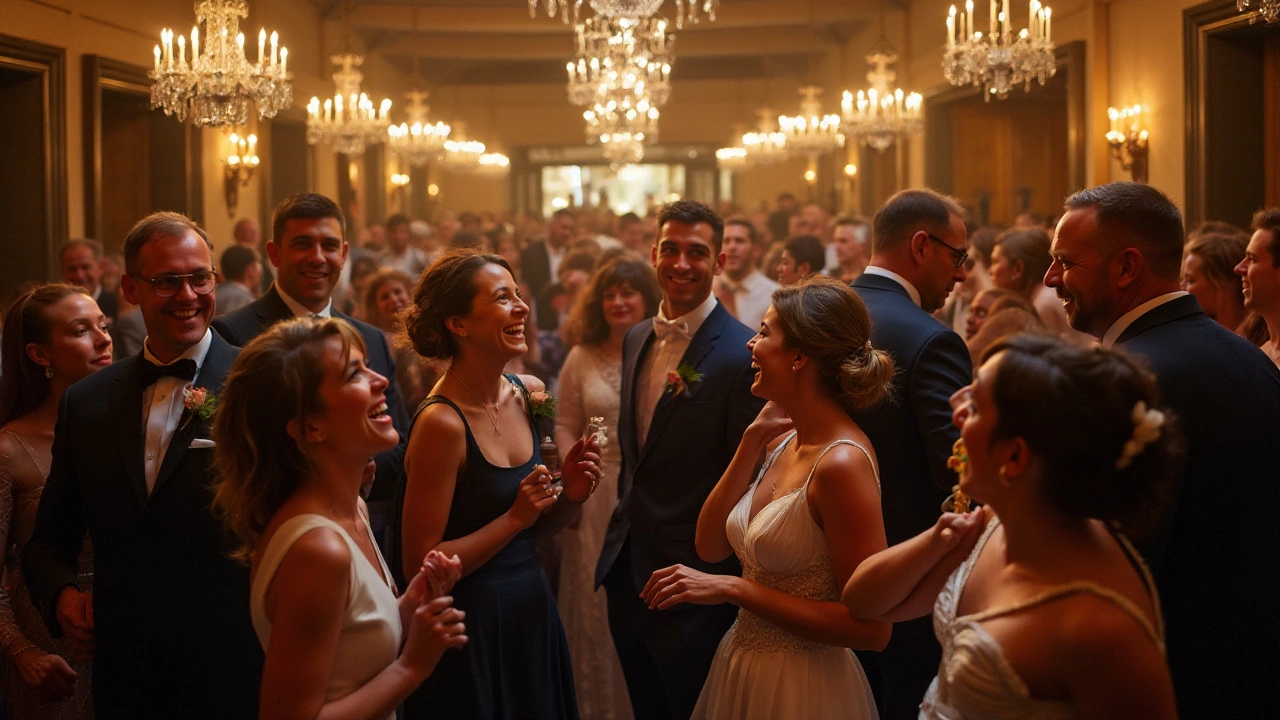
Capturing Essential Moments
When planning the photography timeline for a wedding, it's crucial to consider which moments are non-negotiable to capture. These essential moments are those you will look back on for years as a representation of your wedding day. The ceremony is the heart of any wedding, where vows are exchanged, and the union is witnessed. Securing enough time for a photographer here means capturing the intricate details: the groom's nervous glance as the bride walks down the aisle, the exchange of rings, and the first kiss as a married couple.
Following the ceremony, the transition to family and group photos is crucial, as these provide a lasting record of loved ones gathered together. Allocating sufficient time here ensures each group gets their moment in front of the lens, which might require setting aside at least 30 minutes to an hour, depending on your family's size. A seasoned photographer will skillfully hustle through these without making anyone feel rushed, ensuring natural smiles and candid interactions are caught.
The moments leading up to the ceremony are just as pivotal, as they encapsulate the anticipation and excitement. Bridal preparations often include emotional and personal moments such as a mother helping her daughter with the final adjustments to the veil, or the bridesmaids sharing laughter over a misstep in makeup. Capturing these details adds depth and context to your wedding story, revealing a behind-the-scenes glimpse into what makes your day so special. After the formalities, candid photography becomes essential as it captures the genuine joy and celebration among guests.
Prioritizing Reception Highlights
The reception is another cornerstone where a skilled photographer can weave magic. From documenting the first dance to the heartfelt toasts, these moments are filled with emotion and should not be missed. The traditional cake cutting, bouquet toss, and garter removal are all key events that a photographer needs to be ready for, often requiring a mixture of posed and candid shots to encapsulate the full spectrum of the evening's mood.An interesting insight shared by many photographers is the 'golden hour' – the hour before sunset, where outdoor portraits can achieve a beautiful soft lighting effect, often termed as the best natural light. Planning your timeline to include this moment can result in stunning, ethereal photos. As photographer Jasmine Star eloquently puts it,
"Golden hour is nature’s gift to photographers, casting an enchanting glow on everything its light touches, creating romantic, almost dreamlike photos."While these visual gems demand time for proper execution, they offer substantial rewards in photographic excellence.
Considering all these elements, it's evident that having a clear understanding of the key moments you wish to be captured is vital in coordinating with your photographer. Many professionals offer packages with flexible hours to suit a variety of needs, so understanding what is most important to you can help tailor those services effectively. Thus, when deciding on your photography needs, remember to discuss these priorities with your photographer, ensuring no essential moment is left undocumented.
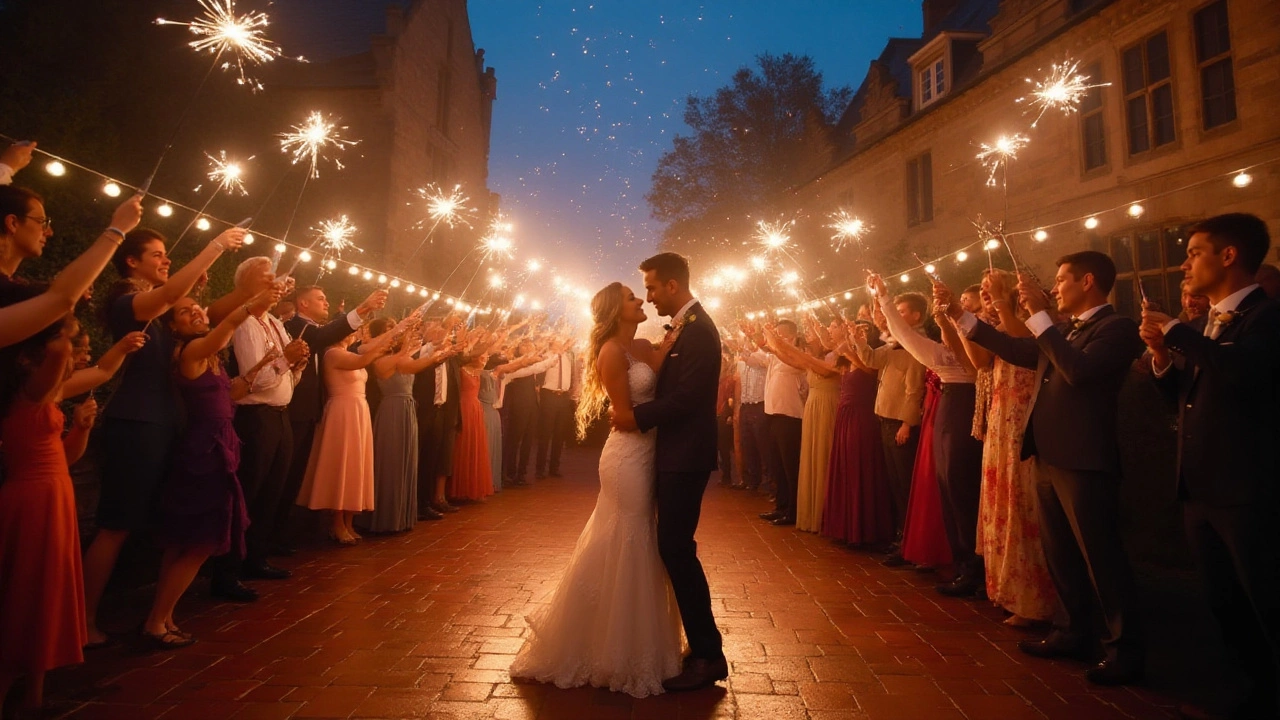
Factors Influencing Photographer Time
Deciding how many hours to book your wedding photographer can be tricky because each wedding is unique, filled with its own series of events and moments. One major consideration is the structure of your wedding day timeline. A traditional full-day affair, which might include everything from the bridal preparation to the last dance, will naturally require extended photography coverage. On the other hand, a more intimate gathering, possibly an elopement or a streamlined city ceremony, might get away with fewer hours. Considering how events are spaced throughout the day is crucial in determining whether five hours is sufficient. If the ceremony and reception are tightly packed, a shorter duration might work perfectly.
Another aspect that influences the time you need is the number and variety of locations involved. If your ceremony and reception are at different places, say a church and a remote barn, travel time eats into actual photography time. Multiple location shoots, each with its own charm and ambiance, can beautifully diversify your wedding album but do add to the clock. More time would allow photographers to set up and creatively adapt to different backdrops. The size of the bridal party also affects the decision. Larger groups will need more time for those perfect group shots, not to mention the spontaneous moments that a skilled photographer catches between posed photos. Capturing everyone’s unique interactions ensures that each guest feels part of the magical day.
The specific shots and moments important to the couple also play a big role in determining the hours needed. Many photographers offer packages tailored to include specifics like family portraits, candid moments, and detailed shots of décor that will tell your story best. Couples should sit down with their photographers to discuss what they want: How important is the capturing of getting ready shots, the first look, or the twilight pictures at sunset? Each significant shot has its implications on the time you will require. A good rule of thumb is to prioritize must-have moments, ensuring they fit within the booked wedding photography hours.
Finally, it is essential to consider how photographers work. Some professionals prefer to capture every single moment, becoming part of your wedding day, which may necessitate longer coverage. Others may focus on essentials, needing less time to encapsulate all key memories effectively. As one seasoned pro once shared,
'Time can indeed be relative to the memory you’re crafting. Protocols may favor averages, but the heart responds to those spontaneous moments between the staged shots.'Your best bet is communicating clearly with your photographer about your vision and how that aligns with their style and expertise.
| Event Type | Recommended Hours |
|---|---|
| Traditional Full-Day Wedding | 8-10 hours |
| Intimate Elopement | 2-4 hours |
| Standard Ceremony & Reception | 5-7 hours |
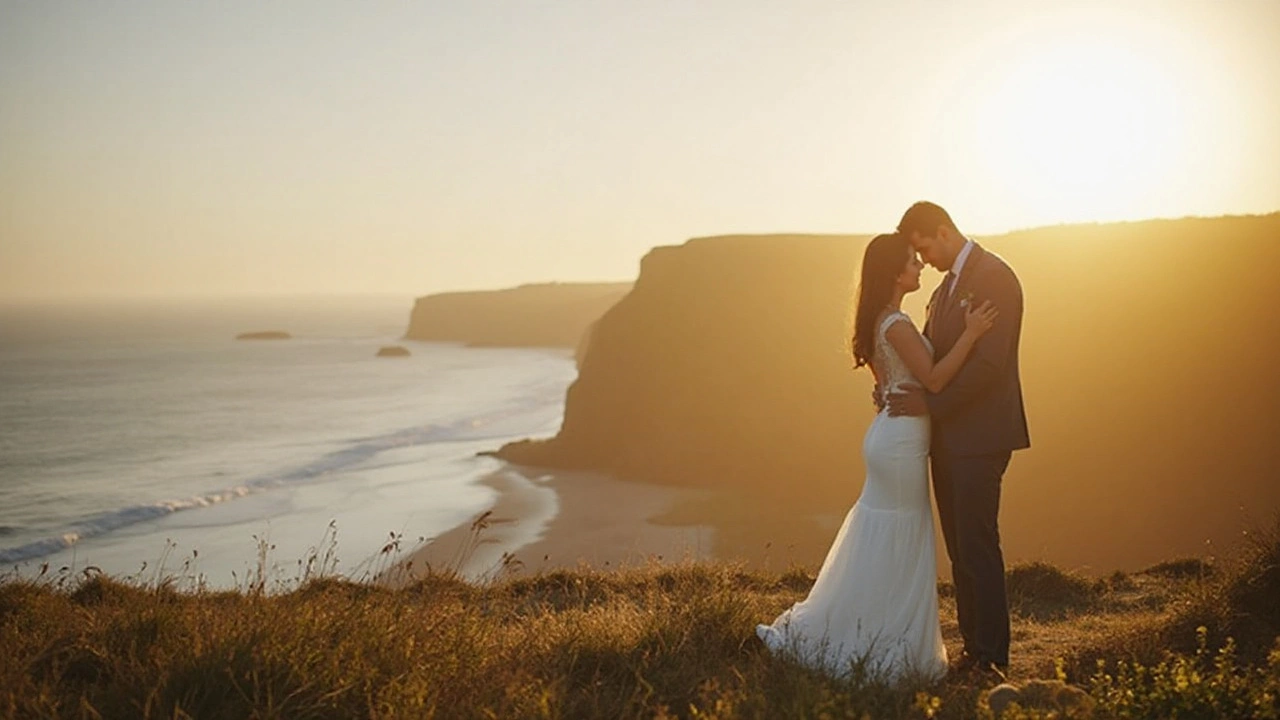
Tips for Negotiating with Photographers
Wedding photography is an investment, capturing moments that become timeless pieces of your life’s narrative. Getting the best deal without compromising quality is an art in itself, involving a delicate balance of budget, expectations, and communication. When you sit down to negotiate with a photographer, it’s wise to come prepared. Begin by understanding their pricing structure. Photographers usually offer packages based on hours, number of photographers, or services like albums and prints. Knowing what is included in each package allows you to ask the right questions and request adjustments that reflect your needs.
Another key point to consider is being clear about which moments are a priority to you. Do you want the focus on the ceremony and formal portraits, or would you prefer capturing candid shots during the reception? Discuss these with your photographer. Sharing your vision helps them suggest the most effective way to use their time. This is also an opportunity to see if they’re flexible enough to meet your expectations. Asking for a custom package isn’t unusual, and many photographers are willing to adjust based on available time or even offer discounts based on the wedding's uniqueness or potential for portfolio enhancement.
Building a relationship with your photographer can be advantageous. Often, if a photographer feels a genuine connection with the couple, they might be more willing to go the extra mile in negotiations. Consider meeting them in person or having a detailed video call where you not just discuss the wedding details but also get to know each other. Remember, a little kindness and respect go a long way in making headway in negotiations. According to Wedding Wire,
“building rapport with your vendors can lead to additional perks or discounts.”Additionally, many photographers value referrals highly. If you genuinely intend to recommend them to friends and family, let them know—it might motivate them to offer a more favorable package.
When it comes to contracts, don’t be shy about reading the fine print. Understanding cancellation policies, what happens in the event of poor weather, or if the photographer falls ill, are all crucial. Discuss overtime charges upfront. Knowing these terms clearly can save both parties potential disputes later. Finally, remember the power of compromise. Sometimes just a small adjustment or highlight of your willingness to be flexible can tip the scales in your favor when negotiating. Balancing a wedding photographer’s need for fair compensation with your budget constraints results in a worthwhile collaboration.
Utilizing special discounts and offers is another technique you could explore. Often, photographers promote early-bird discounts or off-season rates. If you’re planning your wedding during a less busy month, you might find your savings add up. Couples should ask about any special offers available—this simple step can unexpectedly reduce costs. Finding package deals that include engagement sessions or after-wedding shoots is another creative angle worth asking about. By combining what might otherwise be separate services, you could both enjoy a memorable experience and reduce expenses.
